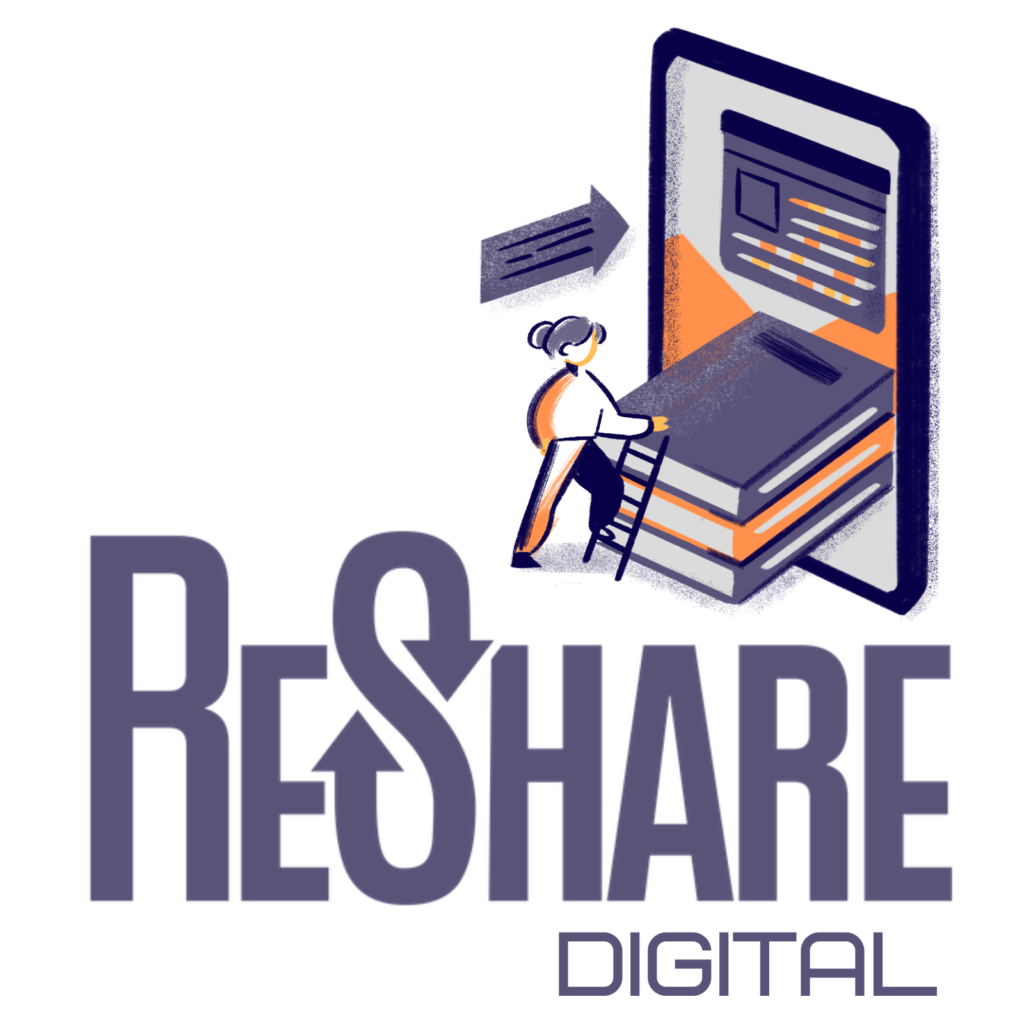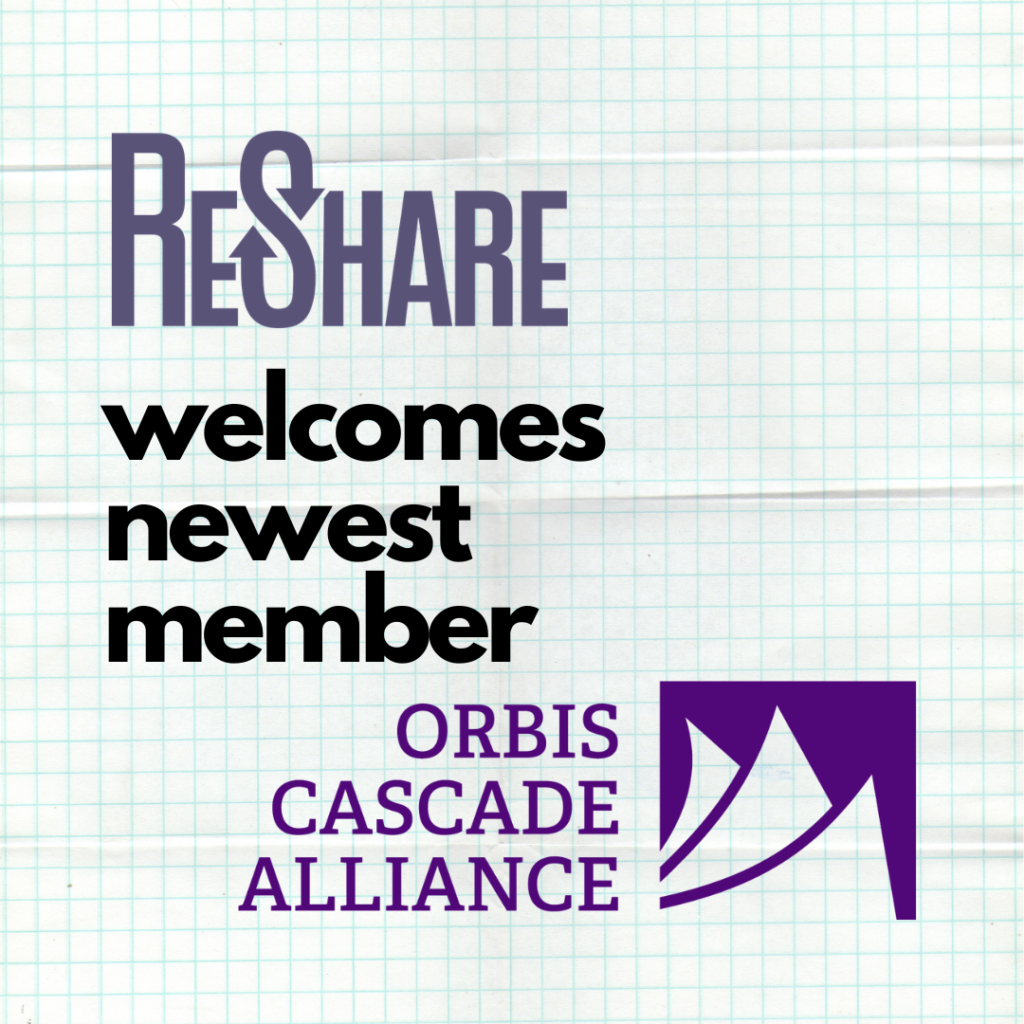ReShare has grown substantially since it was first established in 2018, expanding from its initial 13 member organizations with a shared mission to create an open source, community-owned resource sharing platform, to having more than thirty member organizations by early 2023, offering a fully operational system. Four leading consortia – PALCI, ConnectNY, Ivy Plus Libraries Confederation, and TRLN – are actively using the ReShare platform, with CAVAL and Minitex in the process of implementing. The bulk of the initial software development work was provided by Knowledge Integration and Index Data, as well as Lehigh University Libraries. Development of ReShare’s controlled digital lending (CDL) functionality is also well-underway, in partnership with the Boston Library Consortium.
In Spring 2023, the ReShare Steering Committee recognized the need for a strategic planning retreat, given the meteoric growth of the community and increasing interest in developing a wide range of tools to address multiple resource sharing use cases. Questions around ReShare’s roadmap, sustainability, and development decisions were also growing as the potential scope of the project expanded.
The two-day intensive planning retreat was designed with the help of consultant and facilitator Dr. Deb Mashek. The retreat’s goals were to characterize the complexity of ReShare’s work, articulate learnings to date, and plan for the future in order to sustain the continuous and on-going development of the community.
Perhaps the most complex issues the Steering Committee grappled with during the retreat were 1) the recognition that two possibly competing platforms had emerged within the community with implications and risk to ReShare’s overall sustainability, and 2) a lack of consensus with respect to the meaning and implementation of “community ownership” in the context of ReShare product development. Central to this conversation were issues of sustainability and a focus on the ReShare Code of Conduct’s requirement that participants “not replace community infrastructure; instead, improve it.”
Pursuant to those retreat discussions, the Steering Committee reasserted that the ReShare software development roadmap, including the prioritization and application of any centralized, community funds or resources, must be owned and directed by ReShare’s membership.
On the final day of the retreat, the Steering Committee voted:
- to support a pause in major roadmap decisions to enable the Steering Committee to reflect and fully articulate ReShare’s community ownership process in a way that engaged ReShare members;
- to support an initial, if temporary, moratorium on the use of the ReShare brand name in describing the development effort that had previously been referred to as “DCB” or “direct consortial borrowing” (an effort which was initially defined in the MOBIUS RFP and funded by EBSCO) until its technical implications were more fully understood by ReShare members, and until it had been submitted and vetted through an accepted ReShare community process.* (See Notes)
At the retreat’s conclusion, members of the Steering Committee expressed a desire that ReShare’s community ownership processes be inclusive and applicable to all members, and that the features and functionality represented in DCB development efforts be integrated into ReShare’s platform and community ownership processes in the future.
Following the retreat, a number of ReShare members – namely EBSCO, Knowledge Integration, MOBIUS, MCLS, and Marmot – opted to depart from the ReShare community to support DCB development efforts external to ReShare with a distinct and separate set of business needs and expectations for community governance and process.
The ReShare Steering Committee’s decisions about the application of its brand name reflected careful consideration of project sustainability and scoping, keeping in mind the initiative’s core values of trust, transparency, and community ownership. While the retreat outcomes caused disruption that the Steering Committee is now addressing, the past few weeks have sharpened the Committee’s focus on service to library and consortia-articulated use cases, needs, and community expectations. Steering Committee members are working diligently on preserving the integrity of ReShare’s shared community development vision, and providing opportunities for effective future collaboration with external partners, including the newly separated DCB initiative.
Also following the retreat, and with the impending departure from the community of the organization that serves as the project’s fiscal agent, the Steering Committee began expediting the transition of the project’s financial management with a focus on transparency. The next Community Meeting will include a detailed financial report.
The ReShare Steering Committee will meet again on August 25, 2023 at the University of Chicago. The priorities for this meeting are to:
- further define and articulate community ownership expectations and processes
- revise governance structures and membership to support current and anticipated needs
- create a plan for financial and organizational sustainability, including identifying a new fiscal agent to support an optimized and transparent financial model.
The Steering Committee has been energized by the opportunity to revisit and recommit to our initial vision. We have scheduled a community meeting for Thursday, September 14, 12:00-1:30 pm EST, via Zoom. Community members will be receiving a separate calendar invite for this meeting. In preparation for that meeting, we invite all members to share ideas and questions via this form. The community meeting will be an opportunity to discuss form submissions and to provide updates on product roadmapping. The meeting will be open to all ReShare community members.
Sent on behalf of voting members of the ReShare Steering Committee:
Charlie Barlow, Ginny Boyer, Kristin Calvert, Lisa Croucher, Sebastian Hammer, David Larsen, Boaz Nadav Manes, Julia Proctor, Zheng Ye (Lan) Yang
NOTES:
- In August 2022, MOBIUS announced that it would implement ReShare Returnables alongside its migration to FOLIO. At the time, Knowledge Integration had indicated it would develop features in ReShare Returnables to support direct consortial borrowing (DCB) for MOBIUS, a core feature in their legacy INN-Reach system. Other ReShare member consortia also indicated interest in development of this functionality on the ReShare platform.
DCB fundamentally differs from other forms of ILL, lending directly to a patron at another institution, rather than to a borrowing/requesting library. To support DCB, ReShare’s underlying platform required significant modifications, and ultimately, Knowledge Integration, with funding from EBSCO, decided to pursue DCB functionality as a wholly separate software stack, with the intention to brand the product as “ReShare DCB.”
Because EBSCO and Knowledge Integration built DCB functionality via a competitive RFP process without direct input from ReShare’s Steering Committee or the wider community, DCB was not incorporated into the ReShare roadmap or evaluated under established processes to assess new functional requirements. The DCB platform, as it was developed for MOBIUS, is independent from ReShare’s existing code base.
UPDATE, 9/21/23: The original version of this news item has been updated to remove 1) a statement regarding fiscal agency and 2) the statement that the name of the DCB platform had not yet been determined as of original publication date.
UPDATE, 8/25/23: The original version of this news item has been updated to remove the statement that the DCB platform is “expected to be tied to EBSCO’s proprietary discovery platform, Locate.”




